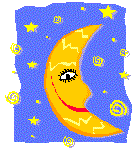
Home -
Foreword -
Georg Philipp -
Piano Business -
Lymington -
Trees -
Related Topics
Alphabetical Links
 |
ASTROLOGY

What comes to mind when you see the term "Astrology"? Is it telescopes or Sun signs, signs of the zodiac, monthly horoscopes or perhaps Mystic Meg?
For 50 years the Faculty of Astrological Studies has been doing its best to clear up any confusion and to improve not only the standard of astrological practice but also to present to the public the real face and applications of serious astrology
There is a vast difference between "sun signs" and weekly horoscopes, from having your astrological chart constructed and interpreted by a trained and qualified astrologer.
General horoscopes summarise the trends for a whole sign of the zodiac (each covering a month) and can only ever give a very general overview. An astrological chart relies on knowing not only the date and place of birth but also the time, ideally to within four minutes.
Astrology is no "New Age" belief. While today in the west astrology is often regarded as somewhat "marginal", "daft but harmless," it is built on remarkably solid and established foundations. It probably originated in Mesopotamia around 3000 BC when the first systematic observations of the heavenly bodies were made. These foundations were then developed by the Greeks to produce Astrology as we know it today, which was a dominant force in their civilisation.
Initially astrology and astronomy were synonymous but over the years they have separated and become distinct disciplines. In Western Europe widespread belief in astrology only began to falter around the beginning of the 19th century.
 |
Over many thousands of years the study of astrology has built up a knowledge of how the various planets, on their own and in interaction with each other, influence life on earth.The "character" of each of the heavenly bodies can be - very briefly - outlined as: |
 |
 |
SUN |
|
MOON |
 |
MERCURY |
 |
VENUS |
 |
MARS |
 |
JUPITER |
 |
SATURN |
 |
URANUS |
 |
NEPTUNE |
 |
PLUTO |
A "Birth Chart" is constructed from the time, date and place of birth. This information is used to map out where the planets were in relation to the time and place of birth. This can be the birth of a person or an entity, or a company, business. Many astrologers will produce a simple Birth Chart as a gift for a new-born baby.
Interpretation of a Birth Chart is known as Natal Astrology. For a fully trained Astrologer, such as the members of the Faculty of Astrological Studies, the construction and analysis of a Birth Chart is a precise skill, while different astrologers may emphasise different aspects of the chart the basic content will be the same. Once the Birth Chart has been constructed and its basic principles explored, its further interpretation is very much led by the client - what it is they are looking for, or perhaps a specific aspect of their life they are concerned about. Astrology and the astrologer can help a person to focus on their lives.
An Astrological Chart can be interpreted to give a "character analysis," perhaps emphasising any possible, natural talents. The interpretation of a Chart can look at changes through time but it is not prediction or fortune-telling. An Astrologer may be able to suggest to a client when it may be a good or a bad time to do something, but they cannot tell them what to do. A Chart may indicate which aspects of life are most important at a given time, when it is time to concentrate on career, personal development, relationships etc. Also, from a birth chart an astrologer can see how changes of residence, from one country to another, can benefit or hinder the purposes being pursued in a person's life.
There are a number of other, more specialised types of Astrology with specific applications:
Some of the applications of astrology are very specialised fields and will not necessarily be available from all astrologers, the F.A.S. would be able to advise on the location of suitable Astrologers for a particular interest, and issues a free Consultants list annually.
To an astrologer, the Sun, Moon and each of the planets: Mercury, Venus, Mars, Jupiter, Saturn, Uranus, Neptune and Pluto represent a natural energy or drive, not only in their own right but also in their interactions with each other. Each has its own characteristics and has a recognisable correspondence in matters of life.
 |
AQUARIUS |
21 January - 19 February |
 |
PISCES |
20 February - 20 March |
 |
ARIES |
21 March - 20 April |
 |
TAURUS |
21 April - 21 May |
 |
GEMINI |
22 May - 21 June |
 |
CANCER |
22 June - 32 July |
 |
LEO |
24 July - 23 August |
 |
VIRGO |
24 August - 23 September |
 |
LIBRA |
24 September - 23 October |
 |
SCORPIO |
24 October - 22 November |
 |
SAGITTARIUS |
23 November - 21 December |
 |
CAPRICORN |
22 December - 20 January |
The basic philosophy of Astrology can be summed up as "as above so below" - at the time of birth the "energy" of the planets, as shown by their positions and interactions, is reflected in the character of the person - or any other entity - being born.
Edited from Hampshire County magazine September 1998
back to top
- Astrology